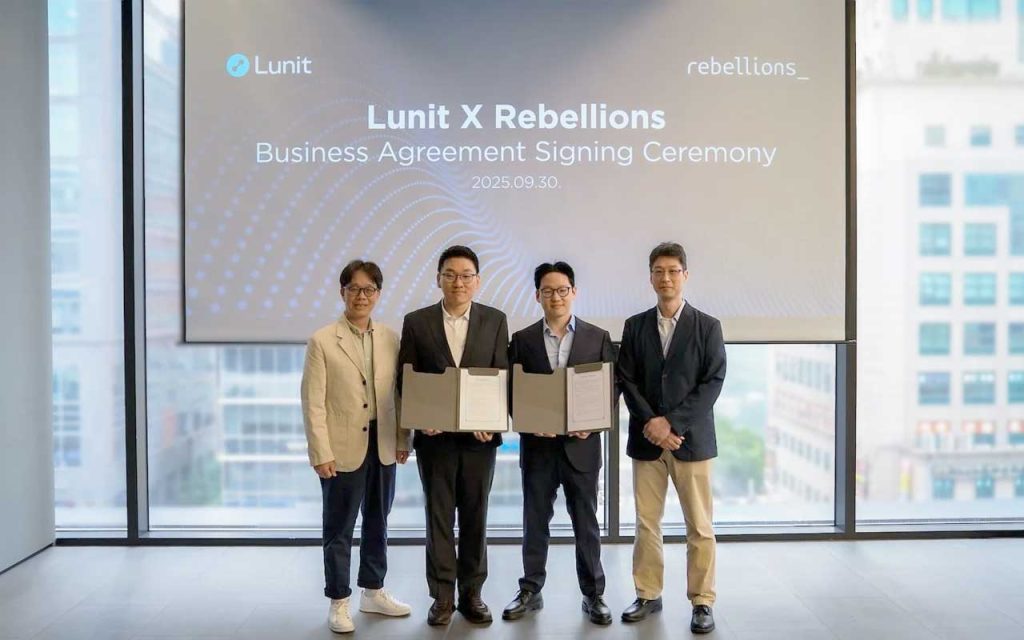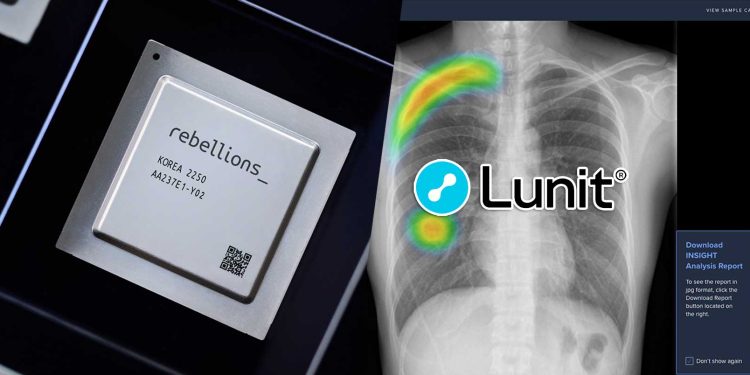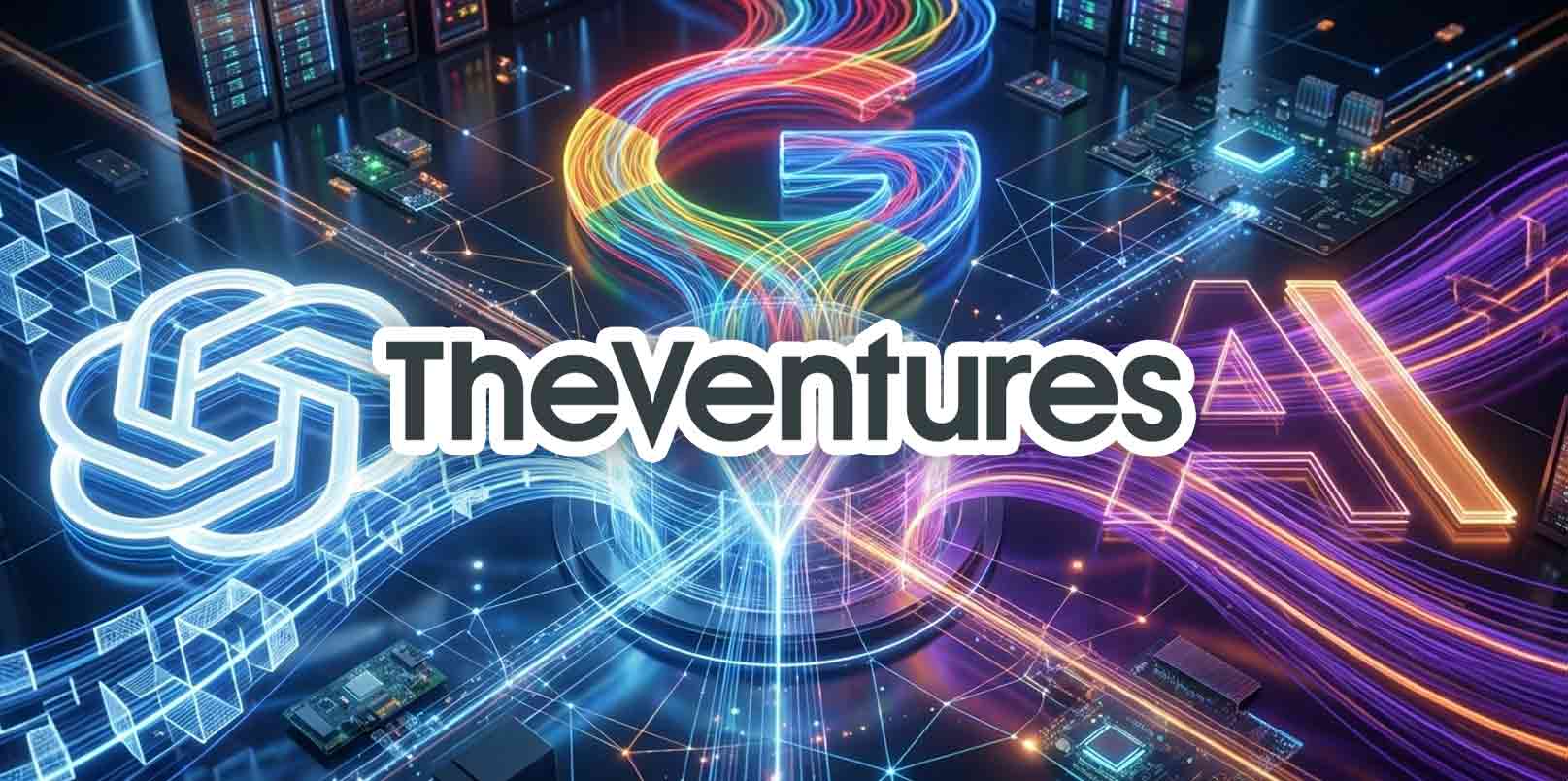Korea’s deep-tech sector is entering a new phase as startups move beyond standalone innovation toward strategic co-development. The partnership between Rebellions and Lunit marks a tangible shift — aligning AI semiconductor strength with medical precision to accelerate vertical AI growth. For global investors and policymakers, it signals how Korea is converting deep-tech capability into healthcare impact.
Korea’s Rebellions and Lunit Forge Strategic Alliance in Medical AI
Korean AI semiconductor leader Rebellions and medical AI company Lunit have signed a memorandum of understanding (MOU) to co-develop advanced medical AI solutions and pursue joint entry into global markets. The partnership marks a milestone in Korea’s deep-tech collaboration landscape, linking AI hardware innovation with clinical-grade diagnostic algorithms.
According to both companies, the partnership will integrate Lunit’s precision diagnostic AI models with Rebellions’ high-performance, low-power neural processing units (NPUs) to create a unified, scalable solution package for hospitals, research institutions, and public healthcare projects.

Strengthening Korea’s Vertical AI Competitiveness
The collaboration aims to accelerate Korea’s position in the vertical AI industry — a growing sector focused on industry-specific applications. Rebellions and Lunit plan to join government-led AI consortiums and national R&D programs dedicated to medical and life-science innovation.
Their goal is to enhance accessibility, efficiency, and service quality in public medical AI platforms. By combining hardware and algorithmic expertise, both sides seek to improve the operating efficiency of medical AI models tailored for clinical use, contributing to Korea’s broader smart-health transformation.
The partnership also reflects a shift in the country’s AI industrial strategy, emphasizing domain-specific adoption beyond generic foundation models. The Ministry of SMEs and Startups (MSS) has recently highlighted vertical AI as a key driver of the next innovation wave — a direction now exemplified by private-sector alliances like this one.
Expanding Korean AI Technology Across Global Healthcare Markets
Lunit currently provides AI diagnostic services in 65 countries, while Rebellions has supplied its NPUs to Saudi Aramco data centers, establishing a foundation for cross-border collaboration.
The companies intend to leverage these international networks to jointly commercialize a Korean-developed appliance-type medical AI solution, merging hardware and software into a single deployable system.
Their expansion strategy includes participation in public healthcare initiatives, such as national cancer screening programs and government-funded digital health projects in emerging markets. This aligns with Korea’s ambition to evolve from a regional technology exporter into a global provider of integrated AI healthcare solutions.
Rebellions – Lunit: Expanding the Reach of Korean AI
Rebellions CEO Park Sung-hyun stated,
“We have accumulated extensive experience operating NPU-based AI systems efficiently and reliably. Partnering with Lunit, a leader in Korea’s medical AI field, allows us to enhance accessibility to AI-driven healthcare and establish new global success stories.”
Lunit CEO Seo Beom-seok added,
“This collaboration marks a pivotal point where Lunit’s AI technology expands into a broader industrial ecosystem. By combining our precision diagnostic algorithms with Rebellions’ NPU performance, we can drive innovation in vertical AI and contribute tangible benefits to global public healthcare.”
Why This Partnership Matters for Korea’s Startup Ecosystem
The Rebellions – Lunit collaboration demonstrates how Korean deep-tech startups are forming value-chain alliances that combine core semiconductor capabilities with application-level innovation. Such partnerships illustrate the next phase of Korea’s startup ecosystem — moving beyond isolated technology development toward cross-domain co-creation that accelerates commercialization.
By focusing on vertical AI fields such as healthcare, the Rebellions-Lunit alliance strengthens Korea’s potential to compete in global high-impact markets where regulation, ethics, and real-world reliability are crucial. It also highlights a model for Korean startups entering global industries through co-development and export-driven frameworks rather than standalone expansion.
Building Korea’s Next-Generation AI Industry
Finally, by forming this partnership, Rebellions and Lunit build more than just a bilateral business deal. The partnership reflects a national shift toward AI industrial integration and specialization.
As the MSS and related agencies continue emphasizing domain-driven innovation, such alliances could possibly become the backbone of Korea’s “Third Venture Boom”, linking AI, semiconductors, and healthcare under one ecosystem.
Ultimately for global investors and policymakers, Korea’s strategy signals a maturing phase of its tech ecosystem — one that increasingly connects local R&D strength with exportable deep-tech solutions. If successfully executed, collaborations like Rebellions and Lunit’s could define Korea’s new growth narrative: AI made in Korea, deployed worldwide.
– Stay Ahead in Korea’s Startup Scene –
Get real-time insights, funding updates, and policy shifts shaping Korea’s innovation ecosystem.
➡️ Follow KoreaTechDesk on LinkedIn, X (Twitter), Threads, Bluesky, Telegram, Facebook, and WhatsApp Channel.






